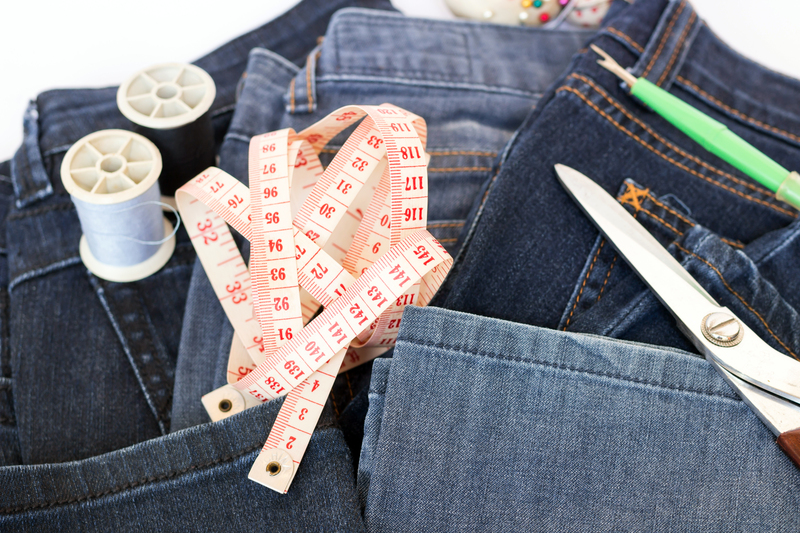How to Safely and Ethically Dispose of Pots and Pans
Whether you're upgrading your cookware or doing a major decluttering, you may wonder: what's the best way to safely and ethically dispose of old pots and pans? Tossing them into the regular trash isn't the most eco-friendly or responsible option. In this comprehensive guide, we'll explore sustainable, creative, and conscientious solutions for disposing of pots and pans. Learn how to minimize landfill waste and even give your old cookware a new lease on life!
Why Ethical Disposal of Pots and Pans Matters
Many people are unaware that improperly discarded kitchenware, particularly non-stick or metal pots and pans, can harm the environment. Pots and pans contain metals and synthetic coatings that can leach toxins or take decades to decompose.
Thoughtful disposal not only reduces environmental harm, but also supports community welfare and conserves resources through recycling and repurposing.
Main Reasons to Dispose Ethically
- Environmental Protection: Prevents hazardous materials from contaminating soil and water.
- Resource Conservation: Allows valuable metals and components to be recycled and used again.
- Community Support: Donated cookware can benefit families and organizations in need.

Before You Start: Assess the Condition of Your Cookware
Start by evaluating your pots and pans. This essential step determines whether your items are suitable for donation, recycling, or other disposal methods.
- Reusable: Good aesthetic and functional condition (no major dents, cracks, or missing handles).
- Recyclable: Made of recyclable metals or materials, even if cosmetic wear is present.
- Non-Recyclable: Severely damaged or made of materials not accepted by local recycling facilities.
Pro Tip: Check for marks or manufacturer labels specifying the composition and recycling code, if any.
Best Ways to Responsibly Dispose of Pots and Pans
1. Donate Usable Cookware
If your pots and pans are gently used and still function as intended, donation is one of the most ethical options. Many households and charitable organizations can make great use of your surplus kitchenware!
- Local Charities: Organizations like Goodwill, The Salvation Army, or St. Vincent de Paul accept kitchenware donations.
- Shelters and Food Banks: Homeless or family shelters and food pantries often need functional cookware.
- Community Centers & Schools: Some community cooking programs or youth centers welcome donated pots and pans.
- Online Giveaway Platforms: Post your items on groups like Freecycle, Buy Nothing, Facebook Marketplace (set to "free"), or Craigslist.
Tips for Donating Responsibly:
- Ensure pots and pans are clean and free of major damage.
- Include lids and handles where possible.
- Check donation guidelines (some organizations cannot accept non-stick or scratched cookware).
2. Recycle Scrap Metal Cookware
What if your cookware is no longer usable? Most metal pots and pans--including those made of stainless steel, cast iron, copper, or aluminum--can be recycled.
- Scrap Metal Yards: Take old cookware to a local scrap metal recycler. Many accept ferrous and non-ferrous kitchenware, including frying pans and saucepans.
- Municipal Recycling Centers: Some curbside programs and recycling depots accept metal cookware, but check with your local public works or sanitation department first.
Remove any non-metal handles, coatings, or plastic pieces when possible, as these can contaminate metal recycling streams.
3. Properly Dispose of Non-Stick and Specialty Cookware
Cookware with non-stick coatings (like Teflon), ceramic, or glass elements needs special attention. These may contain chemicals unsuitable for regular recycling. Here's what to do:
- Contact Manufacturers: Some brands, like Calphalon or TerraCycle, offer take-back programs for used products.
- Check Local Hazardous Waste Days: Non-stick coatings may be accepted on electronics or hazardous waste drop-off days.
- Ask Your Recycling Center: Certain facilities have dedicated bins or procedures for coated cookware.
Never put non-stick pans in open fire or try to dismantle coatings yourself. This can release harmful fumes!
4. Upcycle and Repurpose Old Pots and Pans
Turn worn-out pans into practical or decorative home items. Upcycling not only prevents landfill waste but also adds uniqueness to your space.
- Planters: Use deeper pots and pans (drilled for drainage) as quirky containers for herbs or flowers.
- Wall Art: Paint, stencil, or hang pans to create kitchen-inspired decor.
- Organizers: Old muffin tins or shallow pans make handy holders for office supplies, craft tools, or jewelry.
- Bird Feeders: Turn old saucepans into outdoor feeders for your feathered friends.
Let your creativity shine! Upcycling gives well-worn cookware a second life beyond the kitchen.
5. Sell or Swap Functional Cookware
If your pots and pans are in good condition, selling or swapping is an eco-friendly way to pass them on and earn some cash.
- Local Marketplace Apps: Post on Facebook Marketplace, OfferUp, or Nextdoor.
- Garage & Rummage Sales: Feature gently used cookware in your next sale.
- Swap Groups: Join neighborhood or online swap events to exchange cookware for other goods.
What NOT to Do: Unethical Disposal Methods
While decluttering, avoid these actions that harm the planet and violate local regulations:
- Don't Dump in Regular Trash: Metals and coatings in cookware leach harmful substances and create unnecessary waste.
- No Curbside Recycling Without Checking: Many standard programs strictly prohibit pots and pans.
- Avoid Dumping Outdoors: Leaving cookware in nature or public spaces is not only unsightly but also illegal.
Tips for Safely Preparing Pots and Pans for Disposal
Avoid environmental contamination by following these safety steps before disposing:
- Clean Items Thoroughly: Remove residues, food particles, and grease to prevent odors and health hazards.
- Detach Non-Metal Components: Separate handles, knobs, and lids from metal bases if possible.
- Check Local Rules: Follow guidelines for sorting cookware materials and preparing them for drop-off or collection.
Special Considerations by Material
Stainless Steel and Aluminum
Widely recyclable at scrap yards and recycling facilities. Separate non-metal parts and check for recycling symbols.
Cast Iron
Extremely durable and valuable as scrap! These can often be refurbished--even restored and donated, or resold to collectors.
Copper
Highly sought after at scrap yards, copper cookware is easily recycled. Clean thoroughly or remove burnt-on materials.
Non-Stick, Enamel, and Ceramic-Coated Pots
May require special handling. Not all facilities accept these, so consult your local waste management for safe disposal options.
Case Studies: Ethical Cookware Disposal Success Stories
1. Community Kitchen Revivals
A group home kitchen in Boston received a donation of gently used stainless steel pots and pans, helping them serve nutritious meals to low-income families.
2. Pot Planters Bring Urban Greenery
In Portland, an artist collective transformed discarded saucepans into vertical garden planters for a community park, reducing waste and beautifying public space.
3. Scrap Metal Drives Fund Local Initiatives
A neighborhood recycling drive collected old cookware and scrap metal, raising money for school programs and keeping tons of metal out of landfill.
Frequently Asked Questions (FAQ)
Is it safe to recycle non-stick pans?
Non-stick pans are tricky--many recyclers do not accept them due to chemical coatings. Check with your city or look for manufacturer take-back programs.
My pans have wooden/plastic handles. What do I do?
Remove and dispose of non-metal handles separately according to your local guidelines; recycle the metal parts.
Can I just throw old pots and pans in my household recycling bin?
Most curbside bins cannot accept pots and pans. However, some cities offer special drop-off for large metal items. Always check before placing cookware in your bin!

Summary: The Ethical Cookware Disposal Checklist
- Assess condition: Donate if gently used; recycle or upcycle otherwise.
- Prepare items: Clean and separate materials before donating or recycling.
- Choose the right method: Donate, recycle, upcycle, or sell/swap based on the cookware's state and local options.
- Nix landfill: Never dump pots and pans in the trash unless confirmed necessary by local authorities.
- Spread the word: Share recycling and upcycling ideas to encourage others!
Conclusion: Do Your Part for a Greener Kitchen
Every pot and pan you keep out of the landfill helps create a healthier environment. By taking the time to dispose of old cookware safely and ethically, you not only minimize waste but also foster a culture of sustainability within your community.
Remember--donate first, recycle if you must, and upcycle for fun! With these ethical disposal methods, your old pots and pans can find a new purpose, help someone in need, or simply become beautiful again. Happy decluttering!